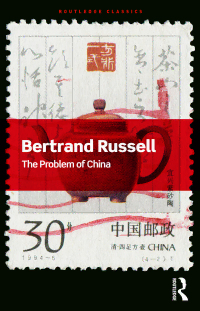Table Of ContentCover Page: i
Half Title Page: i
Series Page Page: iv
Title Page Page: v
Copyright Page Page: vi
Table of Contents Page: vii
Introduction to the Routledge Classics Edition Page: ix
Preface Page: xix
1 Questions Page: 1
2 China before the nineteenth century Page: 10
3 China and the Western powers Page: 32
4 Modern China Page: 44
5 Japan before the restoration Page: 62
6 Modern Japan Page: 71
7 Japan and China before 1914 Page: 88
8 Japan and China during the War Page: 99
9 The Washington Conference Page: 114
10 Present forces and tendencies in the Far East Page: 123
11 Chinese and Western civilization contrasted Page: 143
12 The Chinese character Page: 154
13 Higher Education in China Page: 165
14 Industrialism in China Page: 175
15 The outlook for China Page: 187
Appendix Page: 197
Postscript Page: 200
Index Page: 205
Description:'China, by her resources and her population, is capable of being the greatest power in the world after the United States.' Bertrand Russell, The Problem of China In 1920 the philosopher Bertrand Russell spent a year in China as Professor of Philosophy at the University of Beijing (then Peking), where his lectures on mathematical logic enthralled students and listeners, including Mao Tse Tung, who attended some of Russell’s talks. Written at a time when China was largely regarded by the West as backward and weak, The Problem of China sees Russell rise above the prejudices of his era and presciently assess China's past, present and future. Russell brings his analytical and insightful eye to bear on some fundamental aspects of China’s history and politics, cautioning China against adopting a purely Western model of social and economic development, which he regarded as characterized by a combination of greed and militarism. Beginning with an overview of nineteenth-century Chinese history and considering China's relations with Japan and Russia, Russell then contrasts Chinese civilization with Western. He devotes a fascinating chapter to the character of the Chinese, which he argues is complex but ultimately defined by a ‘pacific temper’. With uncanny foresight, Russell predicts China’s resurgence, but only if it is able to establish an orderly government, promote industrial development under Chinese control and foster the spread of education. This Routledge Classics edition includes a new introduction by Bernard Linsky.

